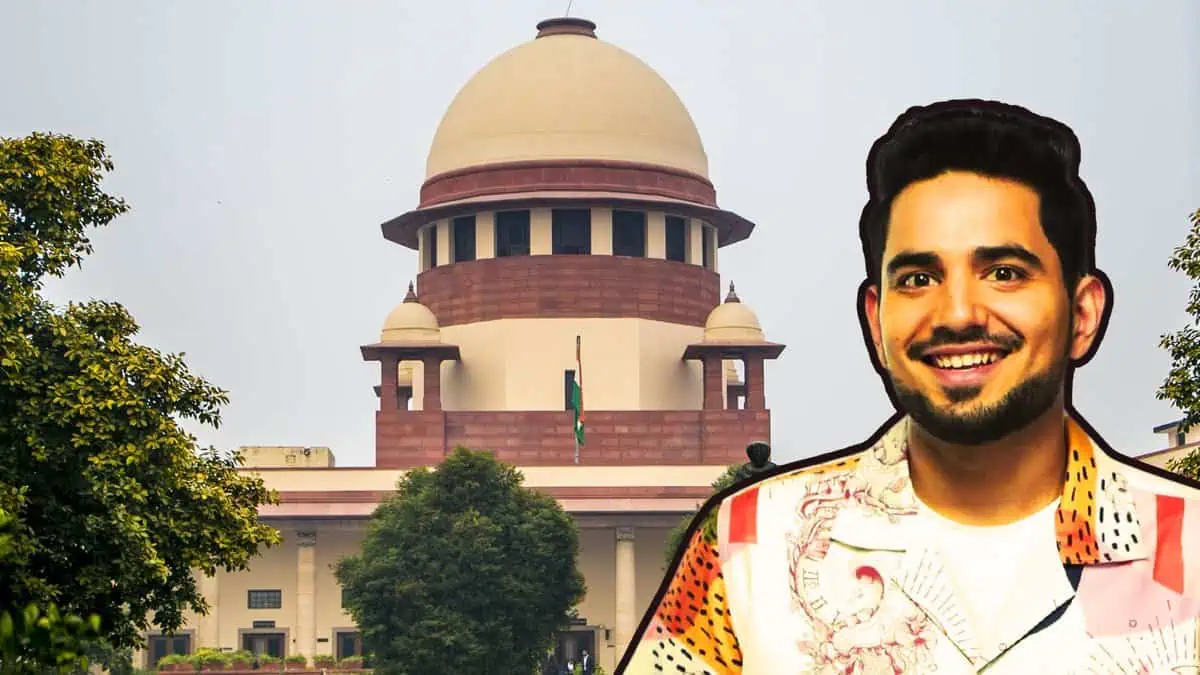The Supreme Court of India has strongly condemned five comedians and influencers for making demeaning remarks about individuals with disabilities during a segment on the comedy show India’s Got Latent. The court directed the accused to issue unconditional public apologies on their digital platforms, warning that monetary penalties may follow.
The group comprising Samay Raina, Vipul Goyal, Balraj Paramjit Singh Ghai, Sonali Thakkar, and Nishant Jagdish Tanwar was named in a petition filed by the Cure SMA Foundation of India, a group that advocates for patients suffering from Spinal Muscular Atrophy (SMA). The petition highlighted jokes that allegedly mocked people suffering from rare diseases, visual impairments, and other disabilities.
Justice Surya Kant and Justice Joymalya Bagchi, who presided over the case, stressed the need for stronger accountability among social media personalities. They questioned the line between comedy and cruelty, particularly when speech is being monetised. “When you are commercialising speech, you cannot hurt the sentiments of a community,” the bench observed.
The top court requested the Ministry of Information and Broadcasting to collaborate with stakeholder bodies such as the National Board for the Welfare of Persons with Disabilities (NBDSA) and develop comprehensive rules for online content, ensuring respectful language towards all communities. The court insisted that these measures should be well-rounded and not merely reactionary.
Centre Urges Caution on Speech Curb
During the hearing, Attorney General R. Venkataramani stated that the government needs time to formulate detailed social media regulations. While acknowledging the need for control, he maintained, “There cannot be a complete gag.”
The court particularly called out Samay Raina, noting that although he did issue an apology, he had first tried to downplay his actions. “Respondent No 6 (Raina) tried to portray himself as very innocent and then apologised,” the judges stated, expressing concern over such defensive posturing.
Cure SMA’s legal representative, Senior Advocate Aparajita Singh, supported a more constructive penalty. She proposed that instead of fines, the influencers could be made to contribute towards spreading awareness about disability rights. “Let them use their influence to take forward this issue. That would be the best apology,” she said. The influencers reportedly agreed to this suggestion.
All five comedians were summoned to appear in court, with the exception of Sonali Thakkar, who was exempted after assuring the bench she would issue an on-air apology. The others were present as per the court’s July 15 directive.
Unchecked Speech Risks Wider Harm: SC
Commenting on broader implications, Justice Suryakant noted, “Today it’s about disabled, next time it can be women, senior citizens, children… where will this end?” The judges warned that unchecked derogatory speech could spiral into a wider social issue.
Justice Bagchi made a critical distinction between types of speech: “In the overlap of commercial speech and prohibited speech, you do not have the fundamental right to speak freely.” The bench clarified that freedom of expression does not protect offensive commercial speech that targets vulnerable communities.
In its petition, Cure SMA pointed out that the comedians’ jokes were not isolated incidents but part of a disturbing pattern where disabled individuals are treated as objects of ridicule or pity. They submitted video evidence to back their claims, including one clip where a life-saving injection worth Rs 16 crore for a two-month-old SMA patient was mocked.
“These videos shed light on the widespread irresponsible, insensitive and violate dissemination of such online content that contravenes the rights of the persons with disability under Article 14 and 21 of the Constitution of India,” the petition noted. The foundation argued that the content amounts to hate speech, misrepresents people with disabilities, and encourages societal apathy.
Court: Can’t Expect Victims to Fight Every Time
The judges further questioned whether citizens or organisations should have to come to court each time they are insulted or marginalised. Justice Kant asked, “Is it required that a Foundation will have to come every time to Court for this? What if some individual is victimised?”
While the NBDSA has handled thousands of complaints involving traditional media, it admitted that influencers and digital creators remain outside the scope of current regulation. The court expressed that bodies like the NBDSA could play a role in building enforcement systems for online content moderation.
The Supreme Court concluded the hearing by stating that it would decide on specific penalties at a later date, and clarified that influencers will not need to appear at every subsequent session. It also warned that platforms like YouTube could be held accountable for hosting such content if it violates the dignity of disabled individuals.


